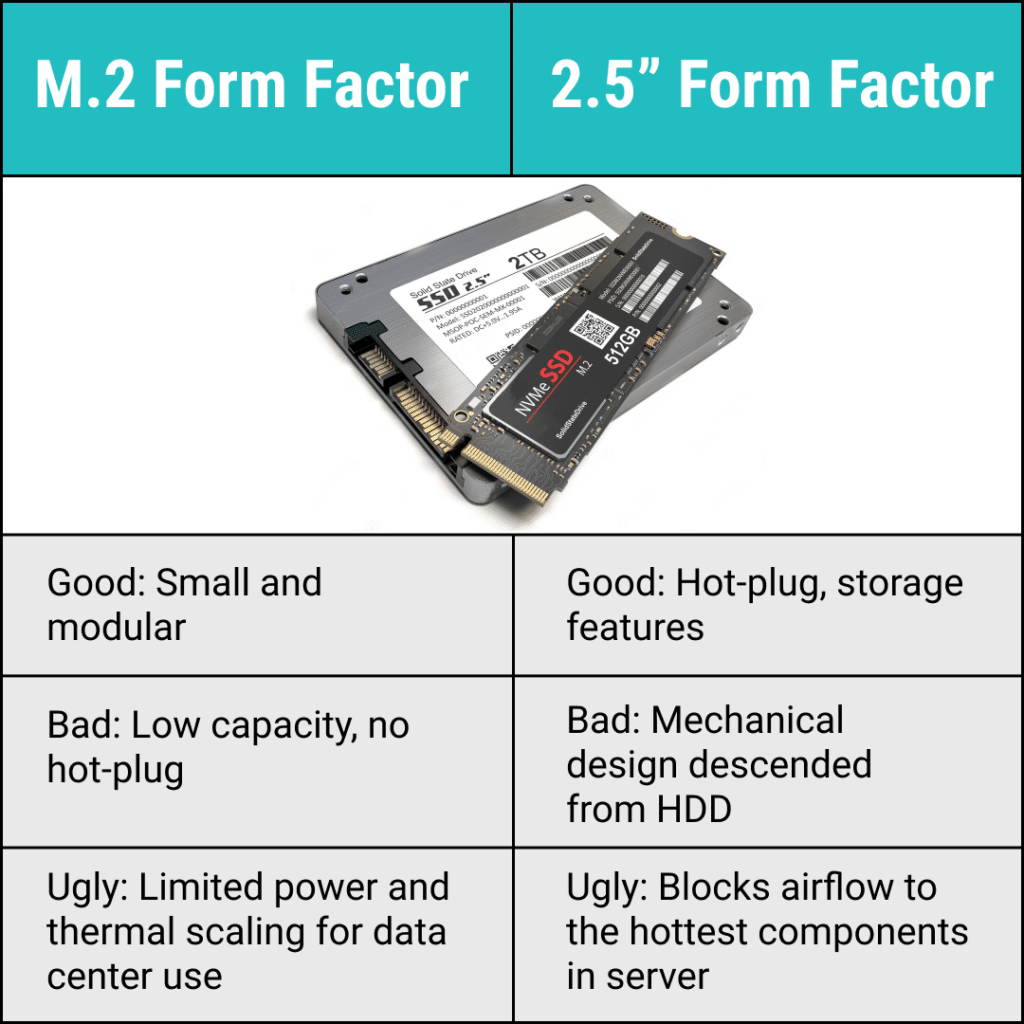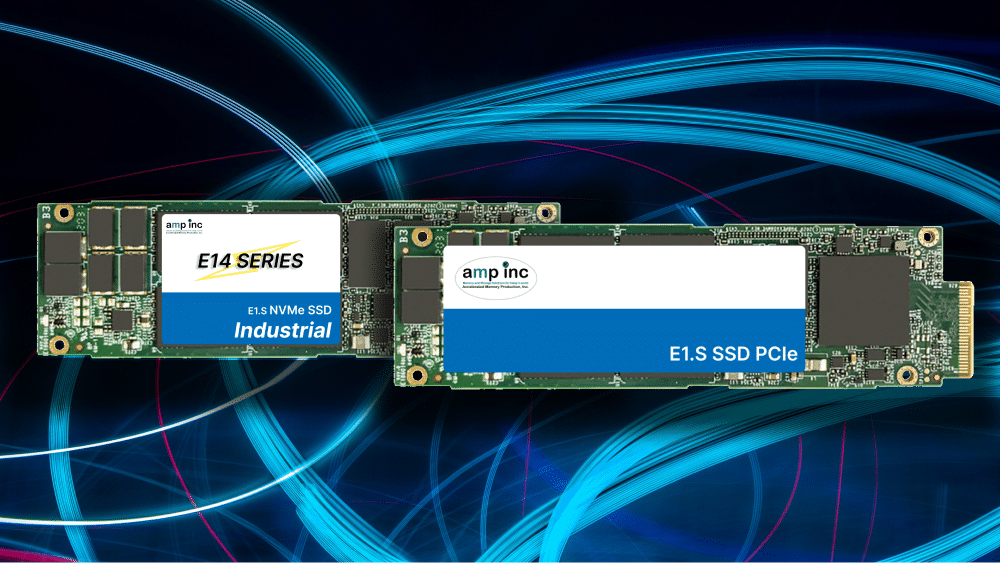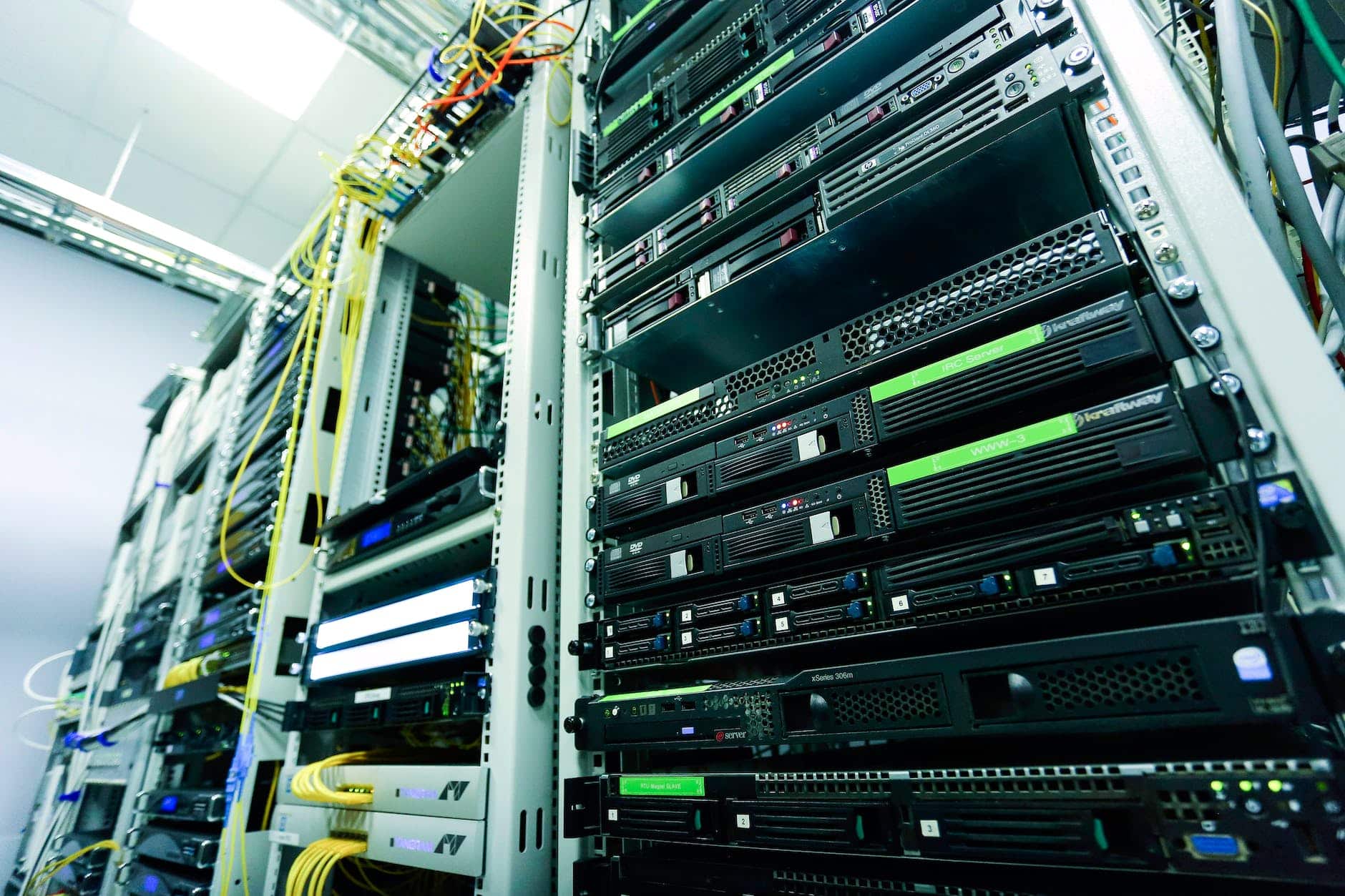E1.S SSDs are a new type of solid state drive that is being developed to address the limitations of traditional 2.5-inch and M.2 form factors. E1.S SSDs are smaller, more power-efficient, and more scalable than traditional SSDs, making them ideal for data centers and other high-performance applications.
E1.S SSDs are designed specifically for flash-memory-based storage. They provide fast data input/output operations per second (IOPS) and low-latency performance. E1.S SSDs also support a variety of advanced features, such as power-optimized support for up to 25-W power envelopes, advanced thermal capabilities, and support for higher capacities per slot.
Problems that E1.S SSDs solve
E1.S SSDs provide a transition from traditional SSDs to solve some of their common limitations, including:
- Airflow issues: Traditional SSDs can generate a lot of heat, which can lead to airflow problems in data centers. E1.S SSDs are more power-efficient and generate less heat, which can help to improve airflow and reduce cooling costs.
- IOPS/TB performance scaling: Traditional SSDs can have difficulty scaling IOPS/TB performance as capacity increases. E1.S SSDs are designed to scale IOPS/TB performance linearly, making them ideal for applications that require high performance and scalability.
- NAND die size: NAND dies are getting larger, which can lead to performance and reliability problems in traditional SSDs. E1.S SSDs are designed to support larger NAND dies, which can help to improve performance and reliability.
- PCIe Gen 4 and 5 power requirements: PCIe Gen 4 and 5 SSDs require more power than previous generations. E1.S SSDs are more power-efficient than traditional SSDs, making them ideal for use with PCIe Gen 4 and 5 devices.

Why upgrade to E1.S SSDs?
There are a number of reasons why you should consider upgrading to E1.S SSDs, including:
- Improved performance: E1.S SSDs offer significantly better performance than traditional SSDs. This is due to their faster IOPS/TB performance and lower latency.
- Increased scalability: E1.S SSDs are designed to scale IOPS/TB performance linearly, making them ideal for applications that require high performance and scalability.
- Reduced power consumption: E1.S SSDs are more power-efficient than traditional SSDs. This can help to reduce your data center’s energy costs.
- Improved airflow: E1.S SSDs generate less heat than traditional SSDs. This can help to improve airflow and reduce cooling costs in your data center.
- Support for next-generation technologies: E1.S SSDs are designed to support next-generation technologies, such as PCIe Gen 4 and 5. This means that you will be able to take advantage of the latest performance improvements without having to upgrade your SSDs.
Use Cases for E1.S SSDs
E1.S SSDs are ideal for use in a wide range of applications, such as:
- Data centers: offer high density, high performance, and low power consumption.
- Edge computing: small size, low power consumption, and support for next-generation technologies.
- High-performance computing (HPC): high performance and low latency.
- Artificial intelligence (AI): ideal because of their high performance and low latency.
Additional information
In addition to the benefits listed above, E1.S SSDs also offer a number of other advantages, including:
- Standardization: E1.S SSDs are based on a fully standardized form factor, which means that they are compatible with a wide range of servers and storage systems.
- Security: E1.S SSDs can be equipped with a variety of security features, such as self-encrypting drives (SEDs).
- Serviceability: E1.S SSDs are hot-swappable, which means that they can be replaced without having to shut down the server.
Overall, E1.S SSDs are a significant improvement over traditional SSDs. They offer better performance, scalability, power efficiency, and features. If you are looking for the best possible SSD solution for your data center, then you should consider upgrading to E1.S SSDs.
At Accelerated Memory Production, Inc. our E1.S SSDs integrate high speed PCIe Gen4x4 interface with third generation 3D TLC NAND flash memory technology, delivering capacities up to 8TB. For more information on our E1.S product offerings contact our sales team at sales@ampinc.com or call us at 714-460-9800 to learn more.

References
SNIA: Webcast Panel Discussion, “Enterprise and Data Center SSD Form Factors – The end of the 2.5in disk era“, Aug. 4 2020.
ElectronicDesign, “5 Tips for Improving Data-Center Flash Storage with EDSFF E1.S SSDs“, Jan. 20, 2023.





